Low ARA stocks widen the East/West as cracks remain seasonally high
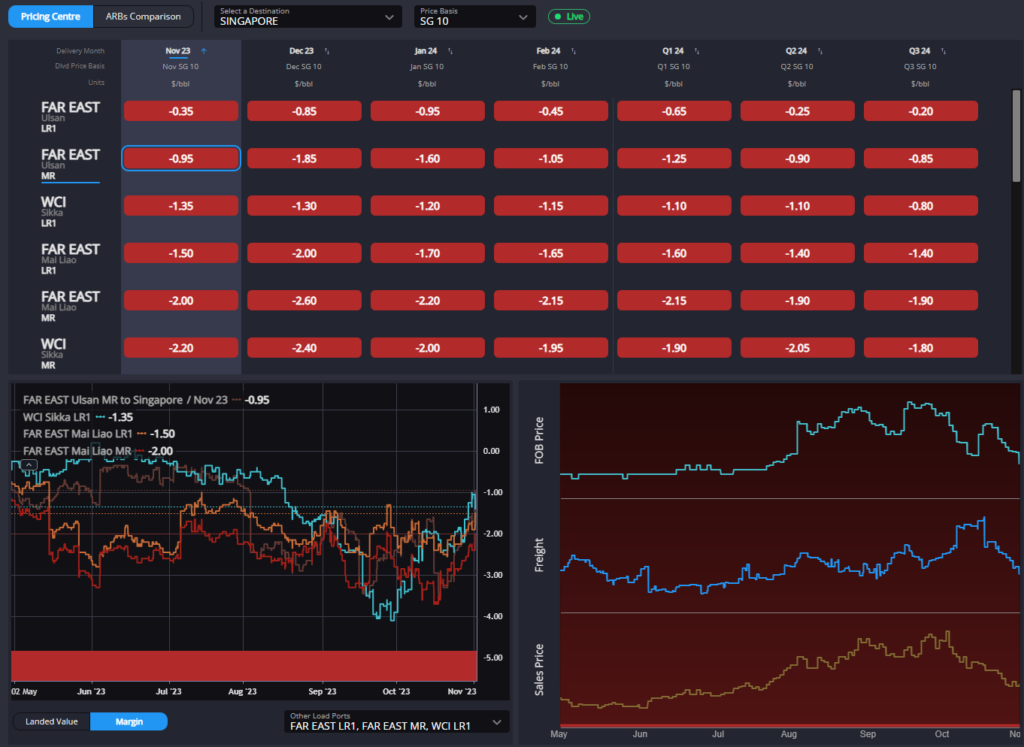
South Korea has reclaimed its usual position as the most cost-effective supplier to Singapore, particularly in the very immediate term.
This shift can be attributed to the significant decrease in South Korean FOB premia, which dropped from +$0.60 to -$0.95/bbl versus MOPS over the past two weeks.
Additionally, the decline in South Korea to Singapore Medium Range (MR) freights, falling from $32.14 to $20.36 per metric ton over the same period, played a role in this cost-effectiveness.
West Coast India (WCI) barrels have slipped in behind South Korean arbs, mainly due to the narrowing of the November MOPAG / SG 10 spread over the past two weeks, going from -$4.84 to -$3.83 /bbl.
The improved pricing of Arabian Gulf (AG) barrels, driven by reduced exports in the region, with October’s exports dropping approximately 20% compared to September, has contributed to this shift.
Moreover, there is continued high demand from Europe, East Africa, and other non-traditional regions like Latin America and West Africa due to the reduced Russian exports.
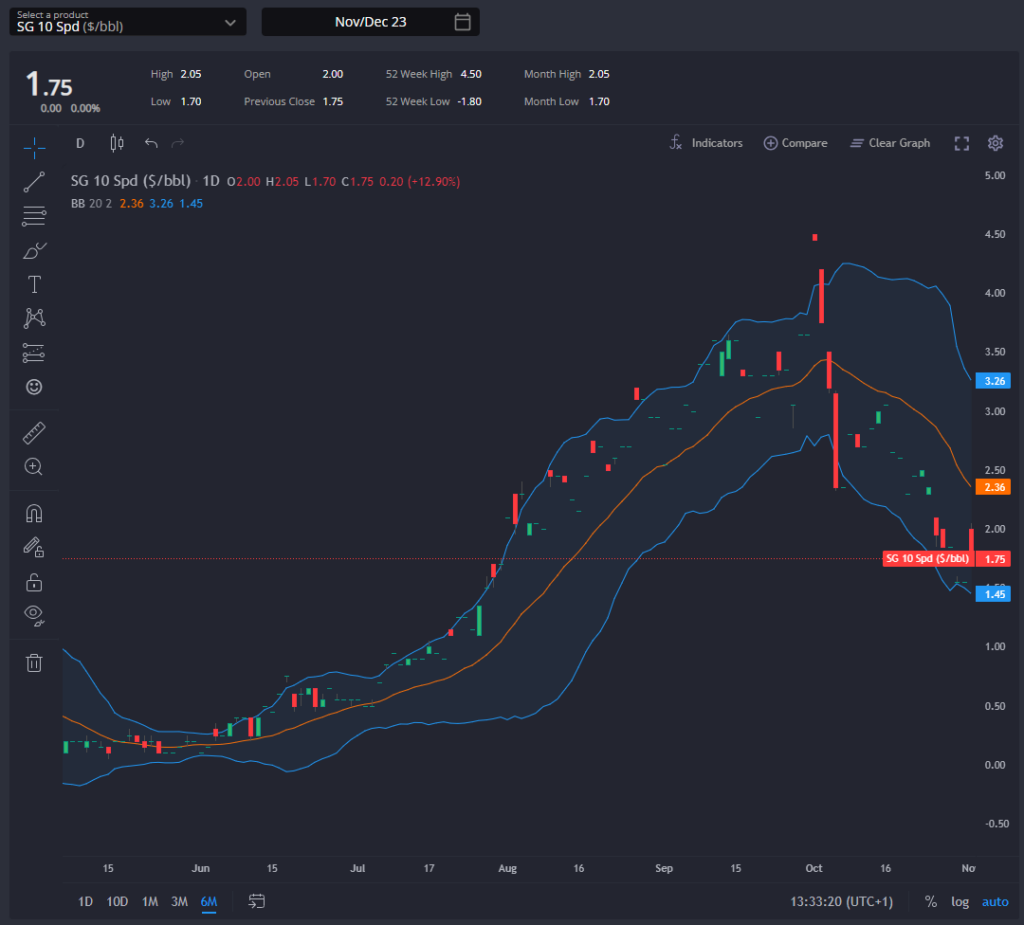
The Nov/Dec SG 10 spreads have recently softened, sliding from +$2.33 to +$1.75 /bbl. This change is attributed to increased Singapore middle distillate stocks, reaching a two-week high this week.
Regional factors have also contributed, including the anticipation of rare Vietnamese diesel exports in November due to the return of Nghi Son Refinery from maintenance.
As anticipated in last week’s analysis, November’s East/West (E/W) spread widened from -$21 to -$25.75 /mt over the past week, a trend that is expected to persist as the factors outlined above continue to unfold.
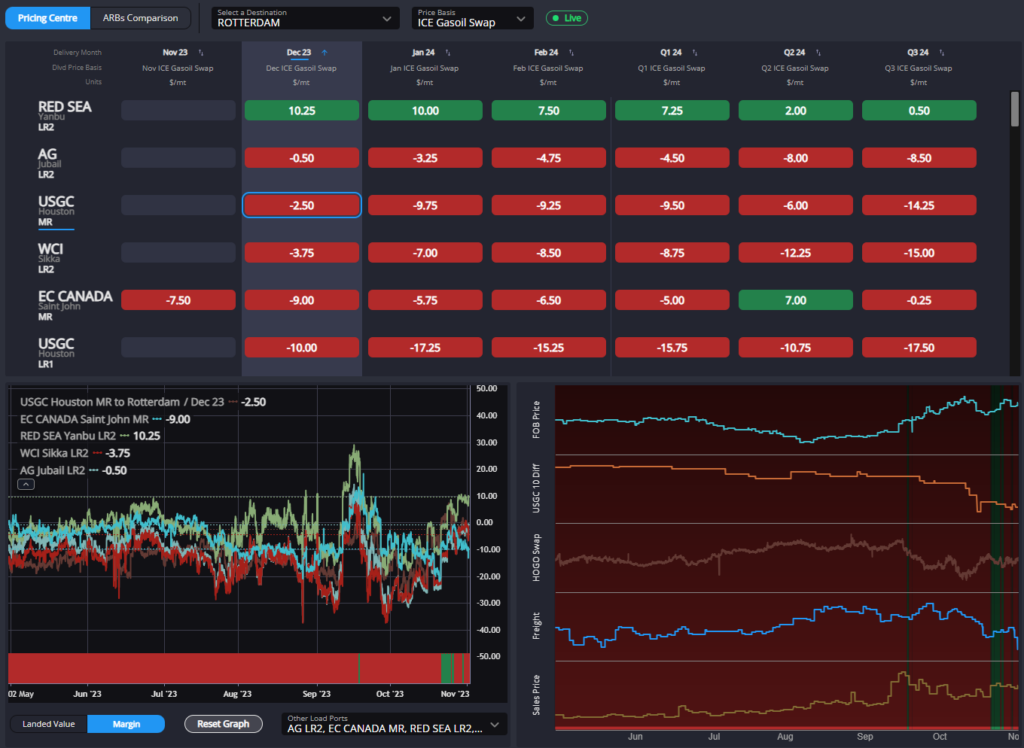
Red Sea arbitrage routes to Europe maintain their status as the cheapest arb and the only open ones at present. However, there’s an intriguing competition between the US Gulf Coast (USGC) and the AG in terms of cost-effectiveness, particularly in the prompt.
EIA data reveals that while the United States overall has relatively low distillate stocks, PADD 3 (Gulf Coast) is relatively balanced. The historic gap in the USGC 10 diff, as previously discussed, continues, partly due to some ongoing issues in the Colonial Pipeline.
As a result, the Transatlantic (TA) arbitrage route to Europe has remained open for much of the past week. The decline in USGC Medium-Range (MR) freights over the past month has contributed to this development.
AG and West Coast India (WCI) loaders have maintained their focus on Europe rather than Singapore, at least for November and December loadings.
Europe’s ongoing need for these products is evident as ARA gasoil stocks recently fell to their lowest level since December 2022, prior to the Russian sanctions.
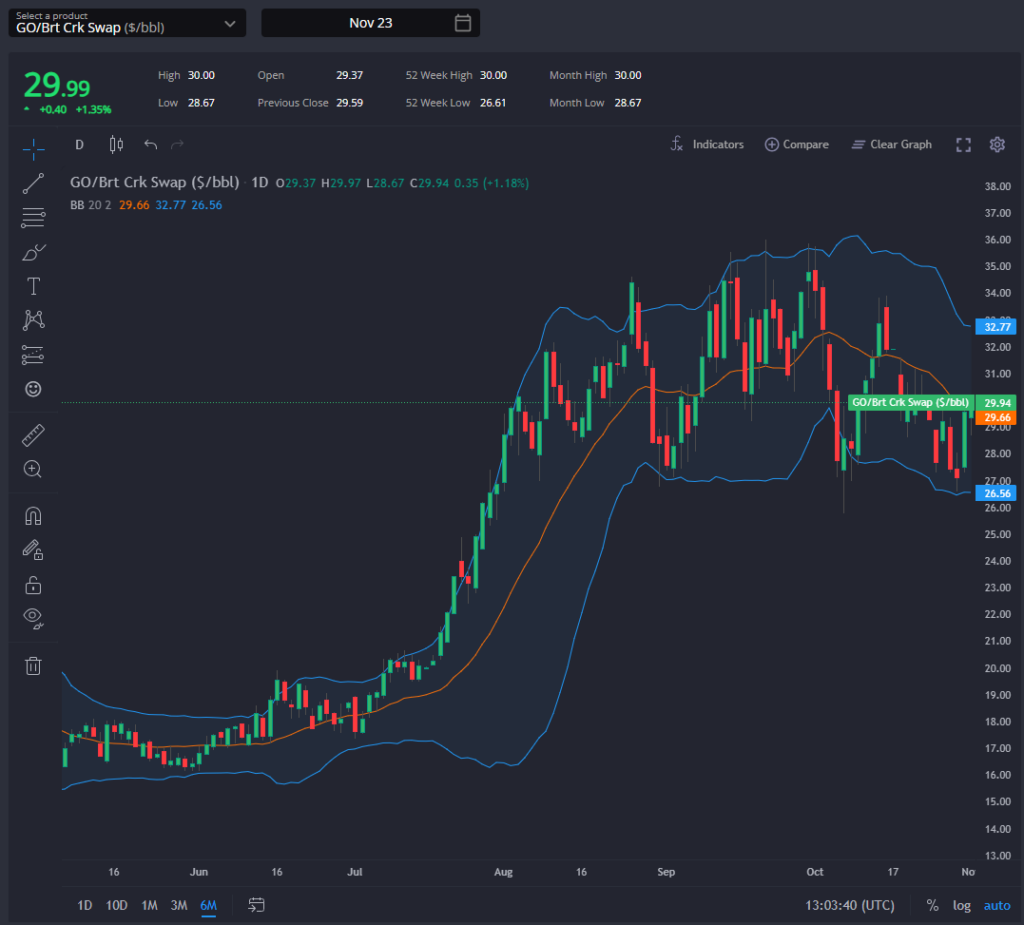
There are some caveats, such as reduced German gasoil demand and signs of an economic downturn in the Eurozone reflected in the downward trend of ICE GO cracks over the past 2 weeks.
However, these cracks have rallied in the past 2 or 3 days to +$29.75 /bbl and there is still an expectation that the East-West spread will continue to widen. This reflects the clear signals from Europe that it requires additional product supplies.
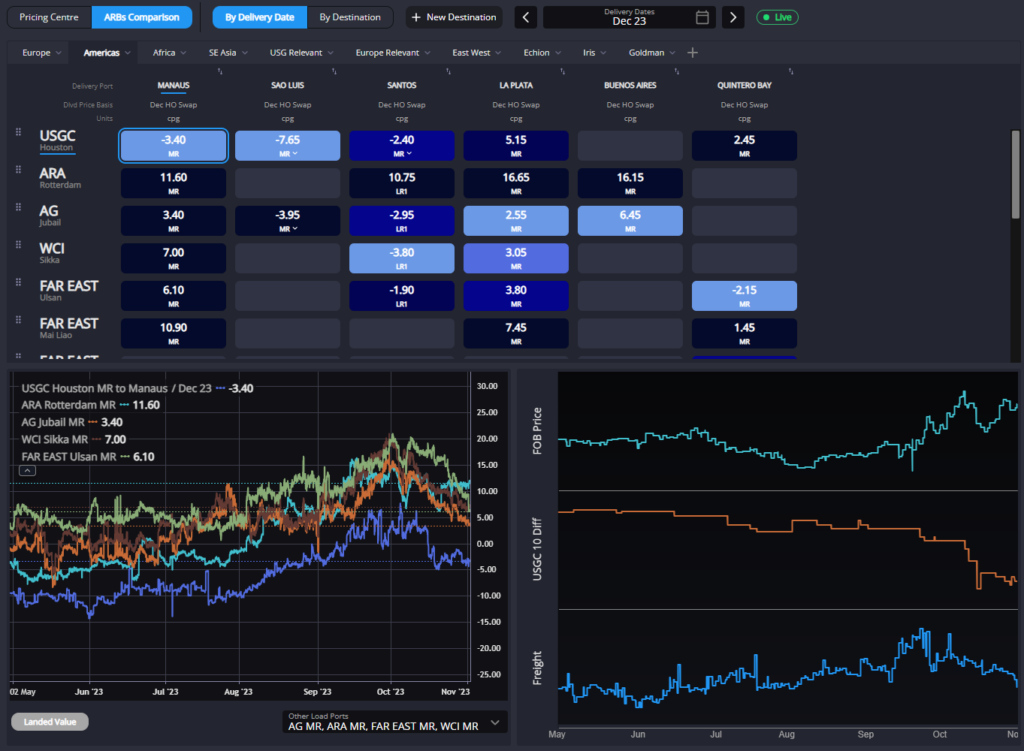
The USGC has emerged as the most competitive player in almost all regions of East Coast South America, challenging due to the USGC’s previously mentioned weakened position and low MR freight rates.
The West Coast of South America has witnessed South Korean barrels become most cost effective due to the above-mentioned reduction in their FOB premia.
AG and WCI barrels, which typically compete in the Latam market, have faced reduced availability due to surging demand from Europe and East Africa. However, the situation is expected to evolve with the end of the Russian export ban.
November’s Russian gasoil export program is set to surge to over 50% higher than October’s, potentially straining the USGC’s traditional Latam export market.
As a result, the USGC barrels are likely to seek alternative markets where Russian competition is absent, particularly Europe. This shift is anticipated to exert pressure on the Heating Oil vs. Gasoil (HOGO) spread, which is expected to narrow to facilitate the placement of USGC barrels in Europe.
James Noel-Beswick is Commodity Owner for Sparta. Before joining Sparta, James worked as an analyst for likes of BP and Shell, and leads our continued development of the distillate product vertical.
Sparta is a live, market intelligence and forecasting platform that enables oil traders, refiners, banks, hedge funds and wholesalers to have access to real-time and global actionable insights to capture market opportunities before others.
To find out how Sparta can allow you to make smarter trading decisions, faster, contact us for a demonstration at sales@spartacommodites.com
